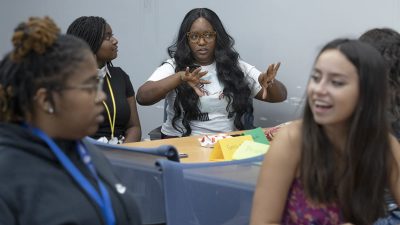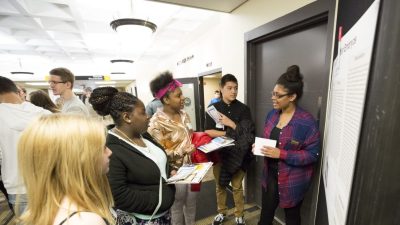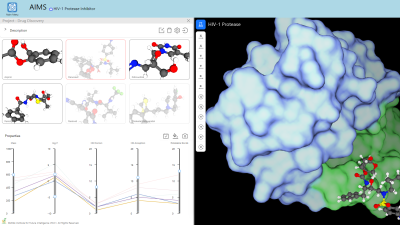EvolvingSTEM: authentic classroom research curriculum to enhance inclusion and agency in modern life science
-
Project Description
Project Narrative The EvolvingSTEM program will use a research-education partnership to educate high school introductory biology students about evolutionary biology, microbiology, and their impact on human health using authentic experimentation and 21st century bioinformatic skills. It has broad potential for increasing understanding of evolution, an important, yet widely misunderstood, life science concept, which will improve public literacy of its role in biomedical advances and public health. The findings from our proposal will improve design and implementation of research experiences that expose high school students (including those from underrepresented groups) to research methods and concepts that are not typically available in conventional classroom activities, and determine whether particular interventions (e.g., near-peer mentorship, student-driven inquiry) lead to sustained engagement in STEM and pursuit of STEM-related careers.
-
Abstract
Project Summary The EvolvingSTEM laboratory uses a guided research experience to increase student confidence in their ability to act and think as scientists. Students take part in an authentic bacterial evolution experiment that can be conducted almost anywhere with minimal equipment. High school students learn microbiology, genetics, and biotechnology through the organizing principle of evolution, seeing obvious, heritable changes in bacterial colonies as they adapt to produce biofilm in just a few days. The experiment is biomedically relevant in simulating evolution during infections because related pathogenic bacteria adapt during chronic infections by identical mutations. An accompanying bioinformatics module has been developed that provides students experience in data science when they identify mutations from whole-genome sequencing data generated from prior student research experiments. Students learn to work through productive uncertainty, to engage with the material in ways that traditional life science education cannot, and to build their capacity for critical reasoning. Investigations such as ours allow students from all backgrounds to form a sense of agency to see themselves as scientists and motivate their interest in related careers. This proposal will test the overarching hypothesis that our program can improve topical learning and attraction to STEM in a large school district attended predominantly by underrepresented minority (URM) and economically disadvantaged (DA) students, the urban Pittsburgh Public Schools (PPS) system. Our goals are to (1) improve high school student attitudes towards learning essential life science topics, such as evolution, microbiology, and genetics, (2) improve understanding of how microbes evolve and influence our lives, (3) provide practical skill development in laboratory methods and data science, and (4) motivate their interest in pursuing careers in STEM, partly by helping them to identify as researchers. We seek to assess program impacts on subject learning and STEM attraction in majority URM/DA classes and will test the influence of near-peer mentors and an extended inquiry module on these outcomes (Aim 1). We will also measure the persistence of changes in attitudes towards STEM and students’ own sense of identity as researchers. In addition, we will substantially reinforce the accessibility of our curriculum to students of diverse learning needs and deepen its relevance to medicine, public health, and data science (Aim 2). Notably we will build a cloud-based visual workflow to teach students principles of data science when analyzing genomic data produced by students’ experiments.






